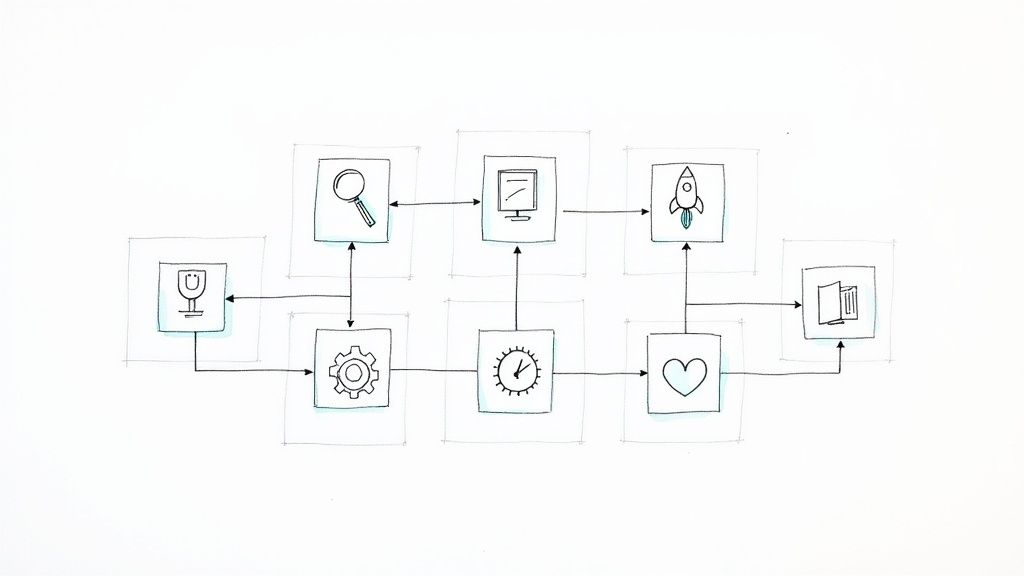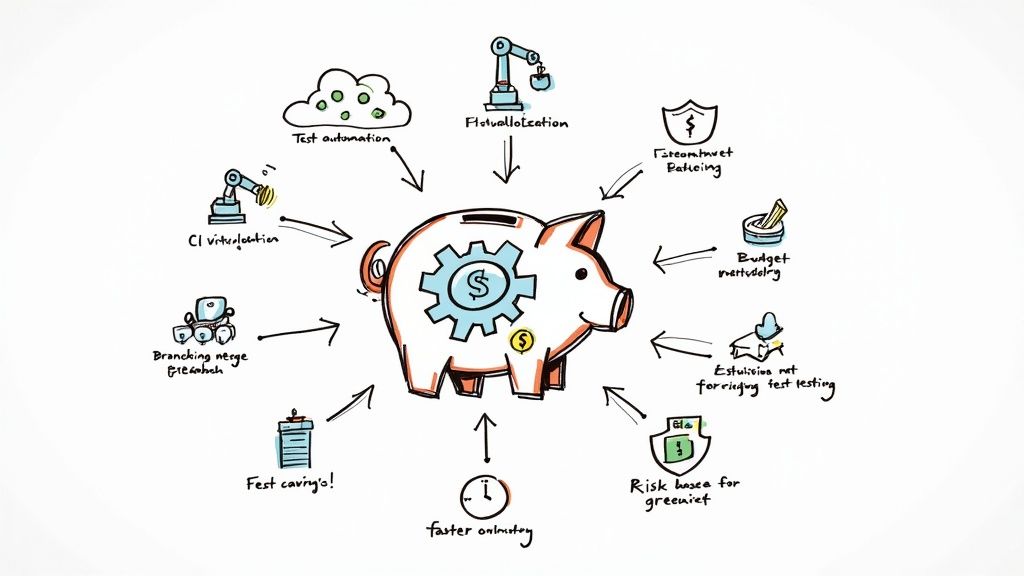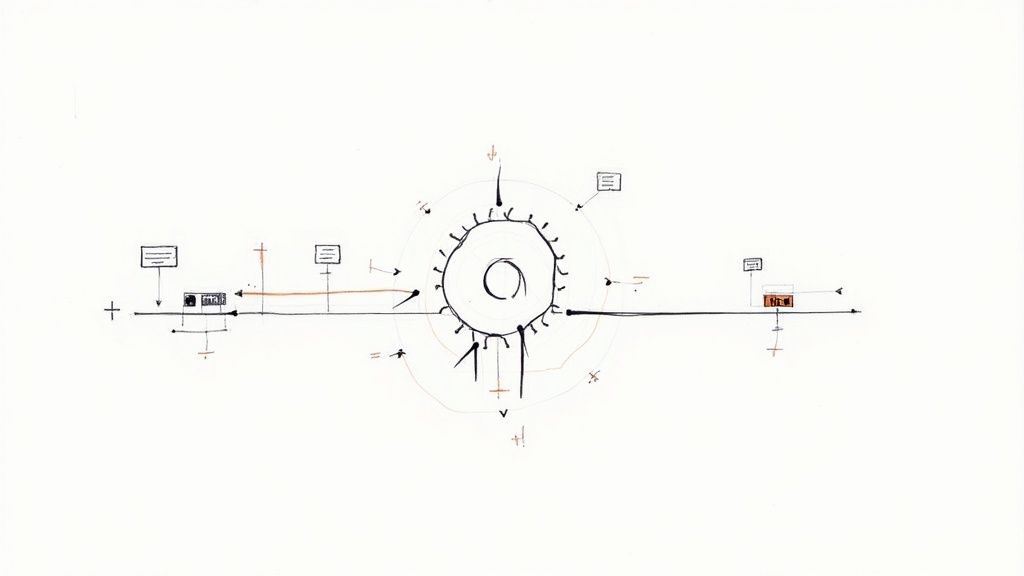Why You Should Have GitHub Backup
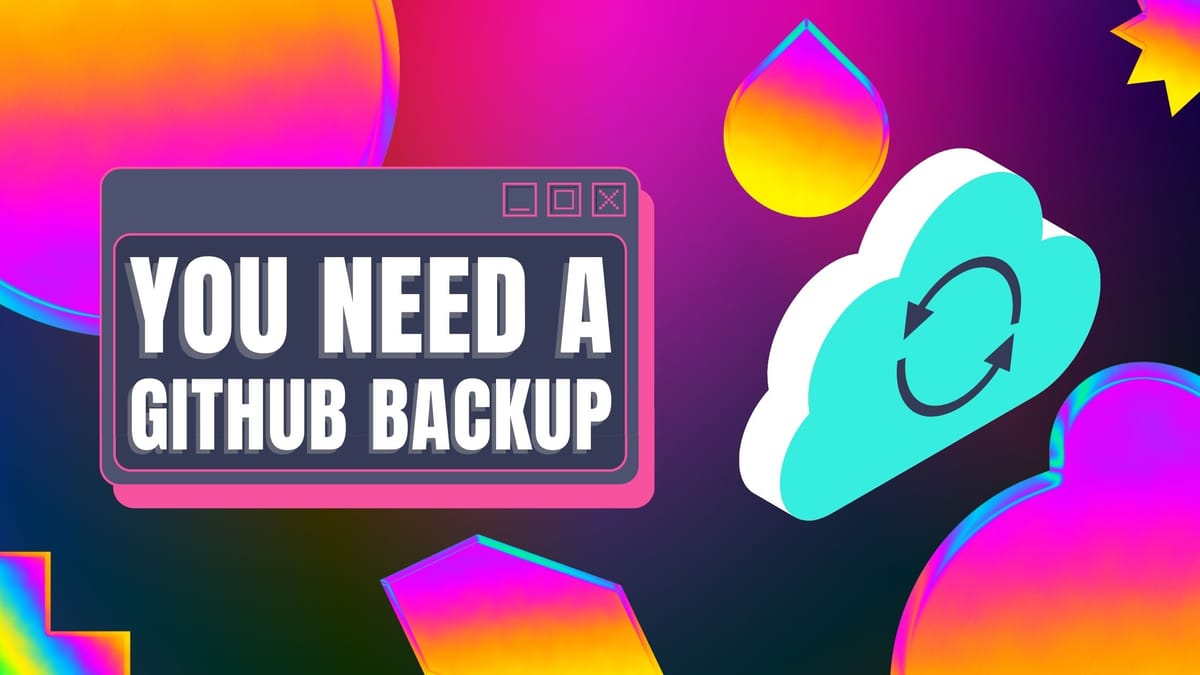
GitHub is a phenomenal platform for all development teams to take advantage of, especially those with members distributed across locations and time zones. Due to the platform's reputation and the ubiquity of Git as a version control system, many organizations use GitHub as the "hub" for their most important projects. However, GitHub's service level agreement leaves a lot of leeway for potential missteps on their part and places the bulk of the burden of code safety and redundancy on the end user.
This translates to a world of hurt for teams who experience data loss on GitHub, even if it occurs through no fault of their own. To mitigate the inherent risk of placing project-critical code on GitHub's servers, you’ll need to implement a comprehensive backup strategy as soon as possible. That's exactly what this article is meant to help you do. Read on to discover what backup options are available to you as a GitHub user and why you should use them.
Does GitHub have backups?
GitHub backup issues abound for teams that used their GitHub repos exclusively without considering their security responsibilities early on. GitHub offers its API (the organization and user migration facets of the API, in particular) as a means of downloading archival copies of repositories. These copies can, of course, be stored wherever you want once you've downloaded them.
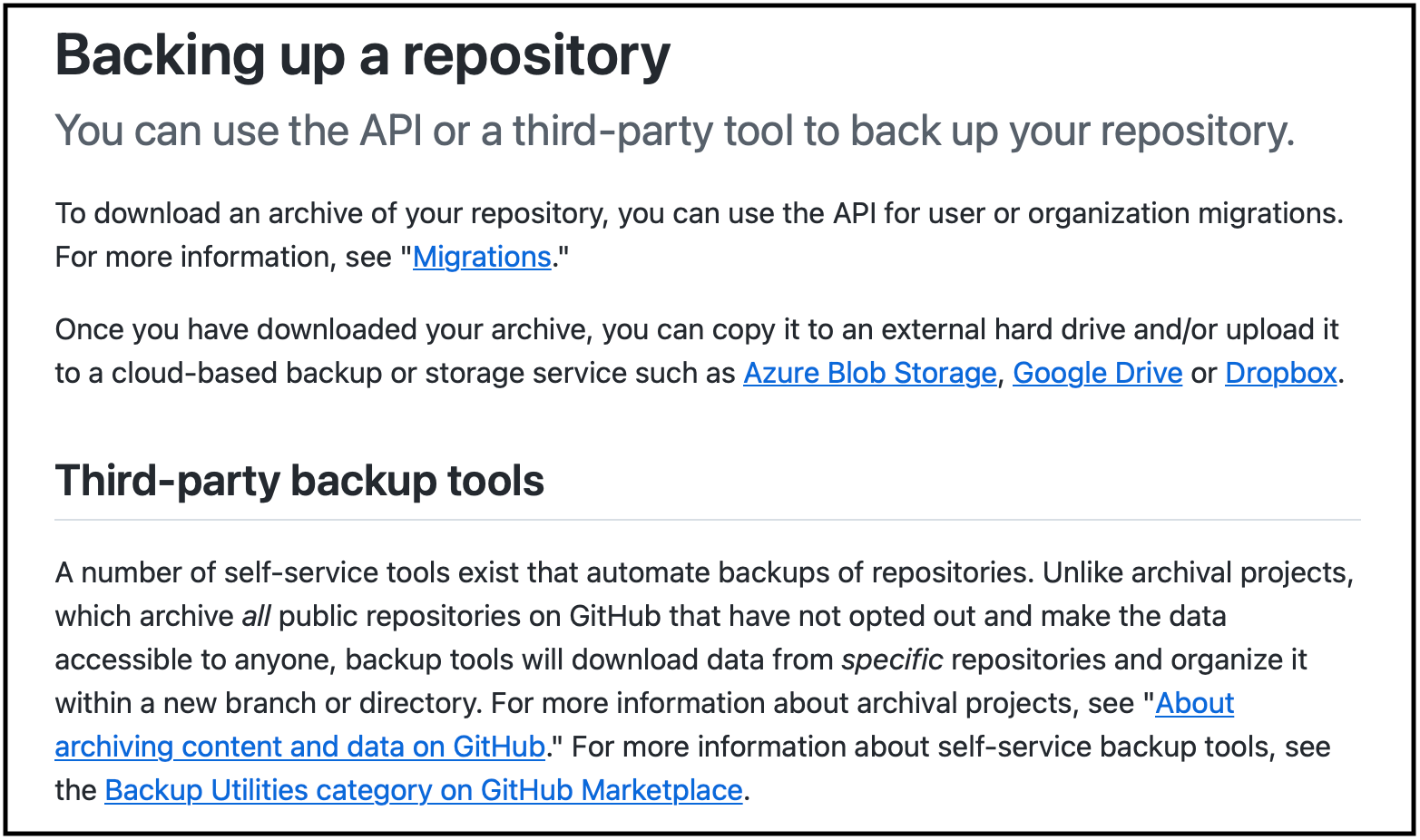
Another option built into Git to help with backup generation is the "clone" command. This works well for generating a working copy of your entire repository on your local machine. Ideally, the command should be run with the --mirror option activated for every one of the refs within your remote repository to make it into the final copy. For those looking to create a single file that common Git operations can be performed on, even while offline, the bundle command is ideal. Git bundle makes it possible for objects in Git to be backed up in .pack files which you can then run fetch and clone commands on.
Despite offering the above options to developers, GitHub acknowledges and recommends the use of third-party tools such as Cloudback and Rewind Backups for GitHub to streamline the process. These tools can dramatically simplify backups for your team while ensuring details such as backup frequency preferences, multiple storage providers, regulatory compliance, and more are accommodated along the way.
The importance of GitHub backups

GitHub backups are often the only way an organization can ensure their production code is genuinely secure. Whether your team builds a simple Git repository backup script to handle the process or selects a third-party solution to shoulder the burden instead, the value of GitHub backups cannot be overstated. As teams finely tune their workflows to revolve around GitHub, the potential for service failure, inaccessibility, and exposure to threats targeting GitHub's systems grows. If GitHub suddenly going offline for a while can dramatically impact your team's ability to get work done, then a proper backup strategy should be implemented.
GitHub backup best practices
Backing up data at scale is an important issue, requiring full-time, professional IT positions to handle it correctly. If your team is looking to tackle such a complex field competently, you'll need to keep the following best practices in mind:
Choose the right storage provider
Backing up data to a third-party storage provider's system will always involve an element of trust. When selecting services to provide such critical functionality for your team, it helps to pay special attention to their service level agreements to ensure your data will be secure and accessible whenever you need it.
Choose GitHub backup tools carefully
It's vital for developer teams looking to leverage backup tools for their GitHub repositories to consider whether those tools can handle both the repositories themselves and the metadata associated with them. Whereas backing up your repository ensures your code is sufficiently secured to withstand a data loss crisis involving GitHub, your development processes would still be at considerable risk without most of your project's metadata to match.
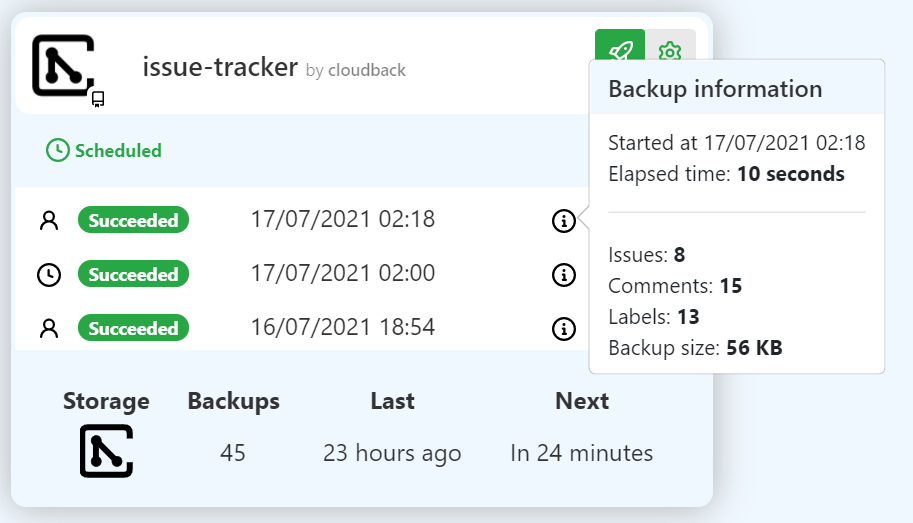
Metadata on GitHub includes critical details such as:
- GitHub issues used for all idea tracking within your project
- Labels used to classify everything from issues to pull requests by priority, domain, etc.
- Topics used to describe your repository's purpose and more
- Releases used to simplify software distribution
- Pull requests complete with descriptions and comments
- Comments on individual commits, whether at the end of the commit or on specific lines
We recommend you to use GitProtect.io
GitProtect.io provides a secure and reliable backup solution for your GitHub repositories. With its state-of-the-art backup infrastructure, you can be sure that your data is safe and secure at all times. It provides an automated backup solution, ensuring that your data is always up-to-date. You can set up automated backups on a schedule that works for you, and you can rest assured that your repositories will always be backed up.
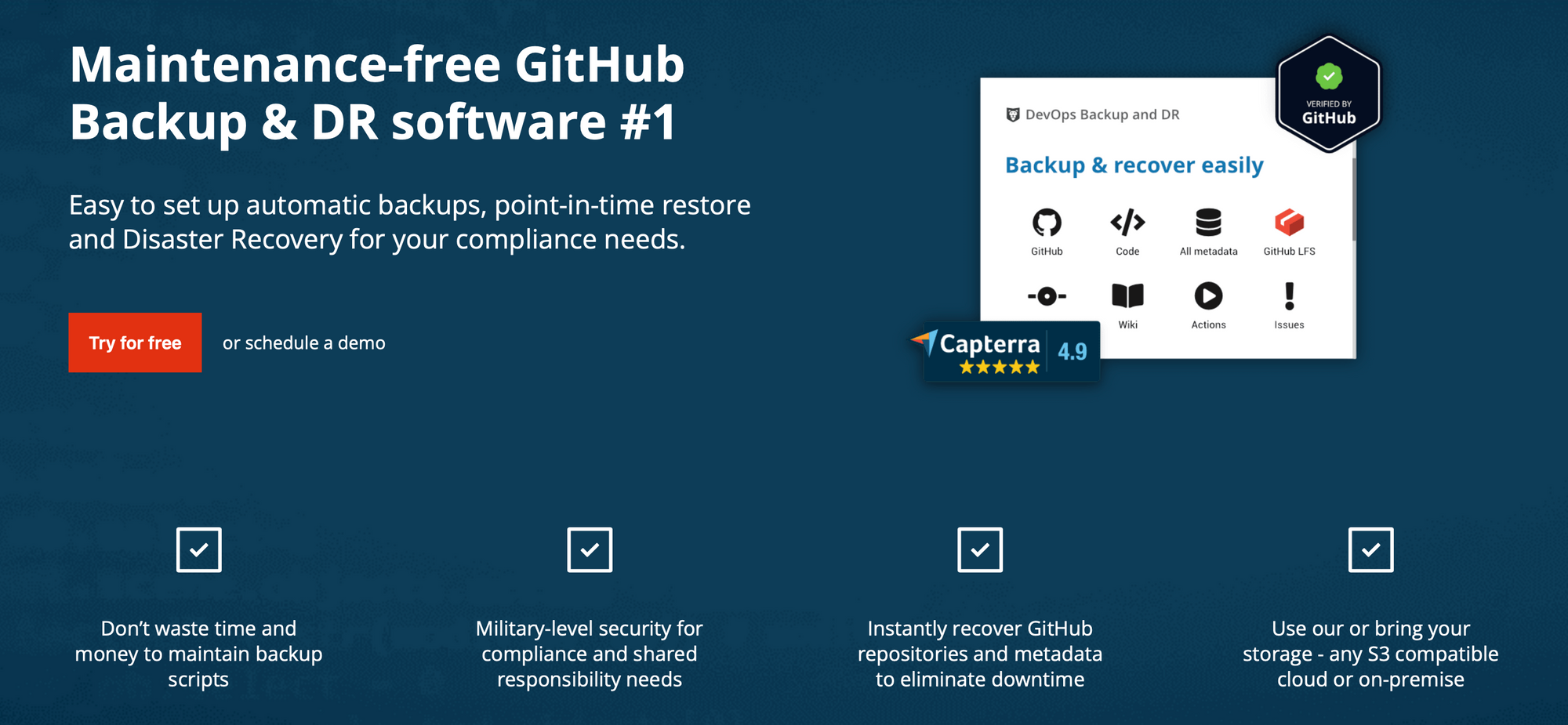
GitProtect.io offers an affordable backup solution for GitHub, making it accessible to organizations of all sizes. With its flexible pricing options, you can choose a plan that fits your needs and budget.
Don't hesitate to check it out on their website.
Simplify GitHub management with Mergify ❤️
Mergify offers some of the most useful GitHub automation functionality on the market. It can make your team much more productive by eliminating crucial yet redundant tasks from their collective workload. Schedule a demo with Mergify today to discover just how beneficial GitHub automation can be for your project.



